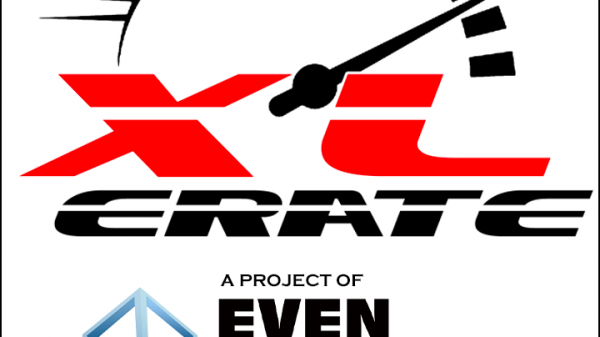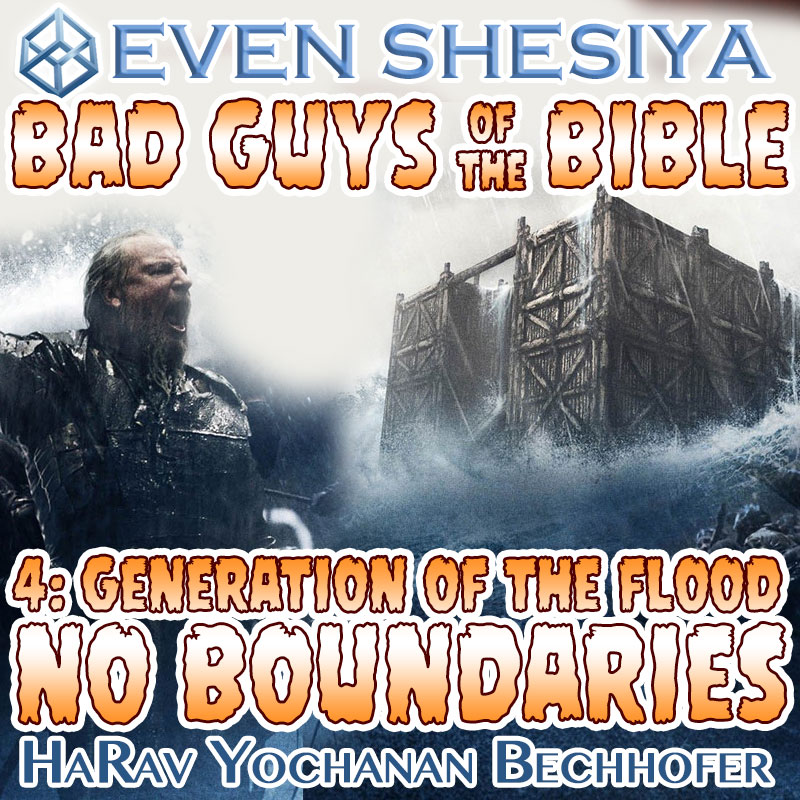Click here to download PDF
Where is the allusion to the 3 weeks?
The parshas of Matos – Massei always come out during the three weeks. The allusions to “Golus”-exile in Massei are quite apparent. The travels of the Jews in the desert laid “groundwork” for travels Jews would have to do in the future. Massei also has the laws of the unintentional murderer whose punishment is “Golus”-exile clearly alluding to our state of exile that we mourn during the three weeks. but where is the allusion to the “Golus” in parshas Matos?
Oaths & Vows
The bulk of parshas Matos talks about the events that were going on at that time prior to Moshe’s death. Finishing up the unfinished business of taking Vengeance on Midyan and what to do with the ‘booty’ and how much to give as a tax for Holy purposes. This is followed by the tribes of Reuven, Gad, and half of the tribe of Menashe getting their inheritance in that area on condition that they help the Jews conquer the land of Israel. What is totally out of place is the very opening of the Parsha – the laws of “Nedarim v’shavuos” – vows and Oaths. why is it here at the beginning of this parsha?
Are they good?
Regarding the whole idea of vows and oaths there are several serious questions: If the added abstinence and restrictions are something positive, why weren’t those added restrictions made part of the regular normative halacha, just like the Lords of Kashrus and the other things that the Torah restricted? If those radded restrictions are totally unnecessary, or even harmful, why did the Torah empower the person to make the Vows and make it obligatory upon himself? Furthermore, why does the person who takes on these added restrictions need to take a vow? Let him simply abstain from whatever he wants without taking a vow! We have a contradiction the words of Chazal whether it is a positive thing for a man to take on extra restrictions or if it’s ‘sinful’. Sometimes the differences of opinion are on the very same page in the Gemara (see Nedarim 22A and Taanis 11a). How do we resolve these conflicting views presented in the Gemara? How can someone actually hold that to take on vows and oaths is a bad thing if when doing so a person has gained a positive commandment to uphold his words and gained two extra negative Commandments not to violate his commitment and to not delay in carrying it out? If he gained extra Mitzvahs how could it be a ‘bad thing’?
Hataras Nedarim
The hardest idea to understand about these laws of vows and Oaths is how seemingly easy it is to get out of it! This is alluded to in this week’s Parsha: “…. he shall not defile his word” – he not – but others do! Those others aren’t just anybody, it has to be to be a wise man or 3 people that comprise a Beis Din. why can’t it be just anybody? Any factor that he claims that if known at the time he made the Vow he wouldn’t have made the vow is legitimate to make the vow retroactively a mistake and hence non-binding. This would never work in any monetary obligation! we would say to a person “it makes no difference what you were expecting, if you wanted it to be contingent you should have said so!” why is there this great leniency by vows and Oaths that would never work in monetary law to render something a “Mekach Taus” – a deal or commitment made under false pretenses? The greatest difficulty is: why is it that if a person makes his vow “by the knowledge of the public”(al daas Rabim) he cannot undo it? If it was made under false, pretenses what difference does it make whether he made it “on the knowledge of the public” or not ?
Normative Halacha vs Nedarim
Normative halacha guides us down the “golden mean” as the Rambam explains in this fourth chapter of his 8-chapter introduction to Avos. The Torah meant for us to indulge and to consume because that is what puts the components of reality in their proper place and pushes forward the cycle of life (see more on this in Even Shesiya parshas Shemini). We are meant to indulge in all that is meant to be incorporated in the “Tzelem Elokim” and through that find its proper place in the cosmos. That is good for us, good for the object consumed, and good for the overall Cosmic balance. Whatever the Torah prohibited to us is not meant to be integrated and finds its proper place by being ‘pushed away’ by us or by being used for whatever it’s permissible to be used for. The Talmud (Yerushalmi kiddushin) says: “man is going to be judged for all that his eyes saw, and he did not partake of”. This is of course with the basic under understanding that what he saw was permissible for consumption and that he consumed it for the proper intent of being healthy and using it to serve Hashem. With this we can understand why the ones who take on extra restrictions through all forms of oaths and even ‘Nezirus’ are criticized by Chazal and the “Nazir” has to bring a ‘Korban Osham” for having abstained from wine that the Torah has permitted. Abstaining from what is meant to be consumed leaves those components of the universe unrefined and dislocated where they were meant to be ultimately. The human being is also lacking in his own composition as his form would have been ‘completed’ by having consumed whatever he was meant to consume. For this reason, those who take on added restrictions are called ‘sinners’ as they are sinning against themselves and against reality. With these ideas the Maharal explains the Gemara (Nedarim 22A) “he who makes a vow is as if he built a sacrificial platform and he who upholds that Vow is if he sacrificed on it (which is prohibited since we are meant to only bring our sacrifices in the Beis Hamikdash)”. A platform is what separates an individual from the rest of people. The person taking a vow is separating himself from the general populace and from the universal good. After taking on these vows he should immediately annul them and rejoin the general population who live by normative Halacha. If he follows through with his vow it is as if he “sacrificed on it” – finalizing his deviation from the “whole”.
The Rule vs the Exception
The Rambam writes in the Moreh Nevuchim (section 3 Chap 34) that the laws of Torah are like the laws of nature. Everyone would agree that the laws of nature are good for the totality of reality and the overwhelming majority of all the entities that fill reality. However, there are some in the minority who are deviant for whom nature is not good such as people who may be sun sensitive or who have allergies to all types of microbes that are vital for the cosmic balance. Their problem does not make nature “bad”! It is they who are in an unfortunate situation and can’t handle what is good for the entirety of the cosmos. So also, explains the Rambam, the laws of the Torah are good for the entirety of the cosmos and for most people in most generations. If there are ever isolated people, times, or places, that have a hard time with the laws of the Torah, that does not detract from the Torah being the absolute truth and the absolute good. There are some individuals and isolated circumstances that have their particular problems and cannot appreciate or live by the laws of the Torah that is good for the whole.
The Torah is greater than nature and seeks to help everybody, even those who have deviant passions or special needs that cannot live by the golden mean and walk the “tight wire of Halacha” because they will fall. The Torah has a way forward for them and allowed these individuals who have special needs to make vows and to take on added restrictions. If they do it a countermeasure to their challenges, then it is called that they are “holy” because they did it to keep themselves “in bounds”! Because on the “tight wire of the golden mean” they would surely Fall.
Rules are Forever- Exceptions aren’t
Halacha is the “rule” and the vows are the “exceptions to the rule” for those people who themselves have special needs that separate them from the general populace. The difference between “rules” and “exceptions to the rules” is that “rules” are real, consistent, and unchanging. The “exceptions to the rules” are flukes that will not endure. This explains psychologically why a person who needs to abstain more than what Halacha demands, because of his passions that are out of control, must make a vow! Because without vows this course of action would not last! The Torah is empowering the special individualistic path which a person needs for special needs. Because the Torah empowers the vows with the special added Mitzvahs, that’s why it lasts and gives a spiritual legitimacy to this special path he had to take on for his special needs.
Getting back to the Rule
With this the Maharal explains why it is so easy to get out of a vow in a way that would never work in trying to get out of a monetary commitment. Monetary commitments are the “rules” of the Torah, Vows are “exceptions to the rules” which are not meant to last, and that’s why they’re relatively easy to annul! It is annulled by declaring it a “mistake” – that if you would have only known then what you know now you would have never made the vow. This is legitimate because it should have never existed in the first place! You go to the wise man or three simple people comprising a Beis Din, why? Wisdom represents the “whole”. “Hashem with wisdom founded the Earth” (Mishlei 3:19) “…all with wisdom you made” (Tehillim 1o4:24). The Rambam refers to the golden mean as “the path of wisdom”. Wisdom sees the whole picture and wisdom dictates the path of the golden mean. The wise man is bringing him back to the “rule”, back to reality as a whole. It is the “wise man” that has to clarify that it was a mistake and enable him to get out of his particular circumstances and rejoin the “rule”. In absence of a wise man, three people can comprise a Rabbinical court. The number “three” also represents the whole – the two extremes and the middle that holds the two extremes together. The wise man or the the panel of three help the person get out of his individual separate state of mind that he had at the time that he made the oath and to rejoin the Whole.
Neder al Daas Rabim
With this the Maharal further explains why when The Vow is made “by the knowledge of the masses” it can never be undone – because now it’s not an exception to the general population! It is connected to general population and therefore can never be rescinded as the general rule cannot be rescinded! Since he is connected it to the masses it is now a rule, and not an exception to the rule, and therefore it is stands forever. He further explains a more general idea: this is why one opinion versus the opinion of the majority – the majority rules. The way the majority thinks is in sync with reality as they are the majority they are more like the “rule” whereas the individual is a “deviation from the rule”.
Rava bar Bar-Chana & the Vow at Sinai
With these ideas the Maharal decodes the fantastic ideas alluded to in one of the fantastic adventures of Rava bar Bar-chana (Bava Basra 74). His guide said: “let me show you Mt. Sinai”. When they got there, it was surrounded by white scorpions the size of donkeys and he heard a Heavenly voice ring out “woe to me that I vowed and now that I vowed who will absolve the Vow for me?”. Rava bar Bar-chana went back to the Rabbis and reported what he experienced. They were angry with him and were critical of his judgment because he should have immediately responded “the vow is absolved” for it was the Vow to cast the Jewish people in Exile! He defended himself by saying that he was afraid it may have been the Vow to never flood the Earth again. The rabbis told him that such a Vow Hashem would never regret making and say, “woe to me that I vowed”. The Maharal explains that going to Mt. Sinai represents ascending to the level of Torah. The level of Torah is so far removed from the human level and that’s what it means that it was surrounded by “scorpions the size of donkeys”. Scorpions are poisonous and destroy the life force. Donkeys have a bite that break bones. This represents how Torah is so beyond human body and spirit, and it is the Torah that is the wisdom that encompasses all and that commanded the golden mean. Hashem says, “woe to me that I vowed” and Rava bar Bar-chana should have actualized the abolition of that Vow which was the vow of Exile. Exile is an exception to the rules of geopolitical sociology and is unsustainable! A nation with a strong national identity, like the Jewish people, who don’t assimilate with their host country, will inevitably go back to their Homeland! The geopolitical crisis of exile should have naturally corrected itself within a short amount of time and certainly not have lasted over 1900 years! This aberration should have corrected itself long ago! The Golus is against all the rules of Nature and is fueled by something that is totally unnatural – our sins! Deep down we just want to do Hashem’s Will and the sins that we do are exceptions to the “rules” of our good nature and unswerving dedication to Hashem. Why does the exile last so long? Because it is backed up by a vow. Hashem made that vow because this was the bitter medicine that we needed in our ‘exceptional’ state that needed this ‘exceptional treatment’. Golus is an exception to the rule that is not meant to endure is meant to be annulled as soon as possible. we are supposed to have learned our lesson, be humbled, and get back to the land of Israel as quickly as possible, and without the vow it would have happened naturally already, as all aberrations correct themselves naturally. Rava bar Bar-chana was afraid that that Vow was the Vow to never flood the Earth again. The rabbis, who were the majority and hence more in touch with the “rule”, were saying that the vow not to flood the earth is like a vow made “by the knowledge of the masses”! It is not an exception to the rule, but a vow supporting the rule! Hashem made that Vow to support the Earth and that is a vow that should not be undone and will never be undone.
Golus will correct itself!
The Torah discusses the laws of Oaths and vows at the beginning of our parsha as Jewish people were preparing for a type of set back similar to Exile: they’re going to live without Moshe who is forever the Rebbe of the Jewish people. The Divine Providence has it that we read this Parsha during the three weeks where we get in touch with the sad reality that we are in Exile. We have to come to the realization that all these setbacks, such as exile, are exceptions to the rule. As long and strong as they seem, their strength is like the strength of a vow. It’s an exception to the rule that eventually will be annulled. It was dished out to us because of our deviant circumstances, that we sinned and we “went out of balance”, and sadly it had to be prescribed and reinforced with a vow, so it should last as long as we need it. It’s not meant to be a permanent State and certainly not our Eternal Destiny. It is just up to us to accelerate that process of not needing it anymore and then our situation will naturally revert to our redemption speedily in our days- Amen!









